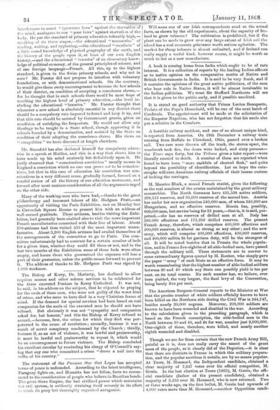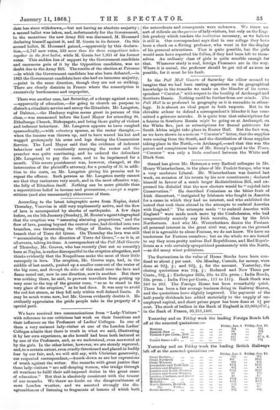Though we are far from certain that the new French
Army Bill, painful as it is, does not really carry the assent of the great mass of the people, as it clearly did of the Deputies,—it is clear that there are districts in France in which this military prepara- tion, and the popular sacrifices it entails, are by no means popular. At Tours, M. Houssard, the Independent candidate, obtained a clear majority of 7,627 votes over his official competitor, M. Gouin. In the last election at Tours (1863), M. Gouin, the offi- cial candidate (father of the present candidate), obtained a majority of 3,252 over M. Houssard, who is now returned. Two or three weeks ago, on the first ballot, M. Gouin had upwards of 4,000 votes more than M. Houssard,—another Opposition candi-
date has since withdrawn,—but not having an absolute majority ; a second ballot was taken, and, unfortunately for the Government, in the meantime the new Army Bill was discussed, M. Iloussard declaring himself against it, and M. Gouin in its favour. On this second ballot, M. Houssard gained,—apparently by this declara- tion,-5,747 new votes, 539 more than his three competitors taken together in the first ballot, while M. Gouin lost 1,951 of his former votes. This sudden loss of support by the Government candidate and enormous gain of it by the Opposition candidate, was no doubt due to the Army Bill. The results of the election at Peronne —in which the Government candidate has also been defeated,—in 1863 the Government candidate here also had an immense majority, —point in the same direction, though they axe not so striking. There are clearly districts in France where the conscription is excessively burdensome and unpopular,































 Previous page
Previous page